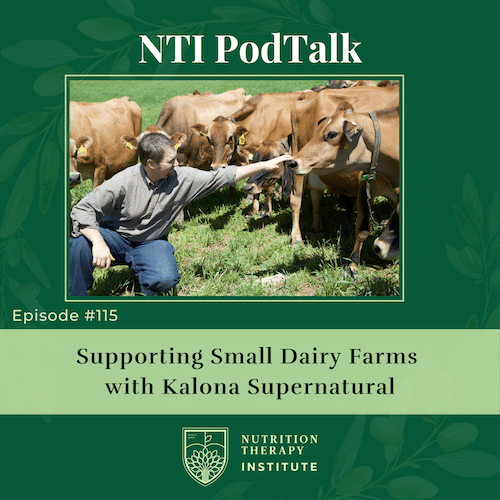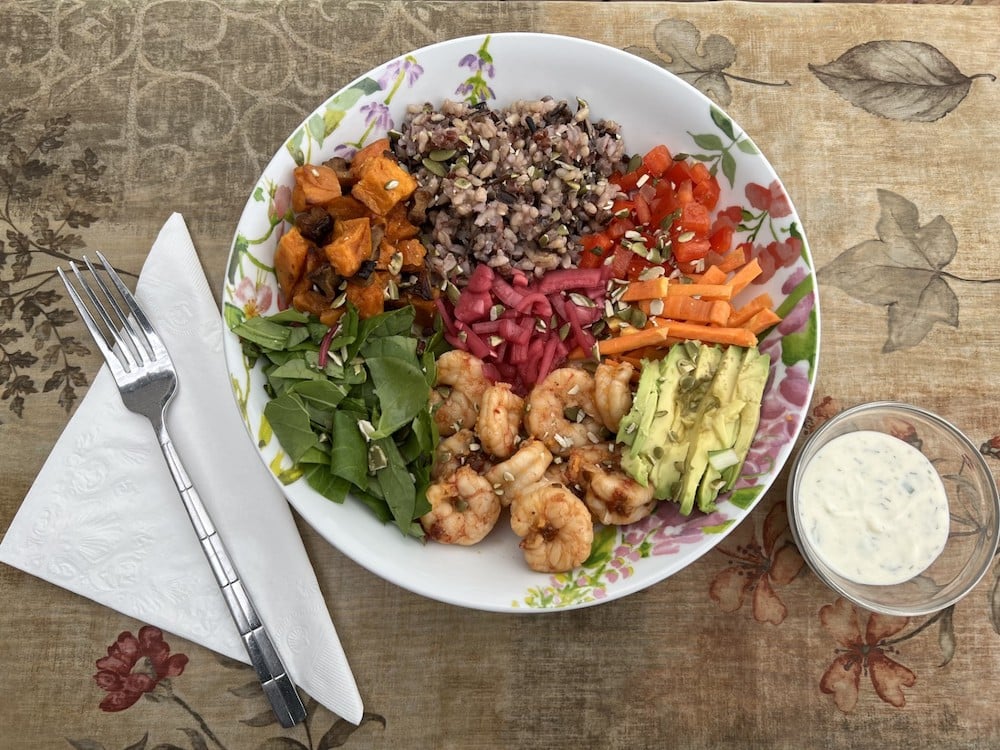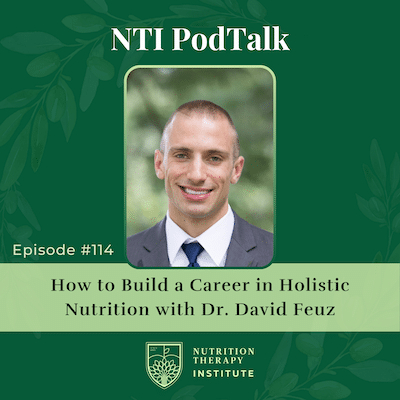
Share this post!
In the previous blog in this series, we discussed how corporations influence food policy. Then, we discussed how the Academy of Nutrition and Dietetics has financial ties to big corporations that influence their members, including Registered Dieticians and dietician students. In this third and final part of the series, we will look at the differences between dietetics and holistic nutrition.
What Is Holistic Nutrition?
Let’s start by breaking down each term. Holistic means addressing the whole person, not just one part of a person. It is an understanding that everything is connected. Nutrition is the process of being nourished by taking in food and nutrients. So, holistic nutrition is an approach to health that explores how nutrition, lifestyle, and the environment are all connected and work together to optimize health and reduce the risk of illness. Holistic nutrition emphasizes ways to integrate healthy habits for the mind, body, and soul. It also recognizes that every person is different and unique, and there is no ‘one-size-fits-all’ approach.
What Does a Holistic Nutrition Professional Do?
A Holistic Nutrition Professional (HNP), as stated by the National Association of Nutrition Professionals (NANP), approaches health and healing from a whole-person perspective using nutritional education as a primary tool. By focusing on the whole person, an HNP considers mental health, diet, and lifestyle factors, and not just the symptoms of a disease or diagnosis. They understand that there is a connection between all body systems and recognize the complex interaction between them. The Scope of Practice for an HNP prevents diagnosing, treating, preventing, prescribing, healing, or curing any disease. They make science-based nutrition recommendations to clients and do not practice Medical Nutrition Therapy (MNT) unless they are a licensed health care professional. The education for HNPs is science-based, focusing on bio-individuality, the science of food, nutrient composition, anatomy, physiology, and biochemistry. They are well-versed in research, critical thinking, and building client-counselor relationships.
An important distinction for HNPs is that they are not regulated or licensed in any state, and each state has different title protection laws. The NANP is a wonderful resource to learn about the practice laws in each state.
Where Can I Learn More About Holistic Nutrition?
Nutrition Therapy Institute (NTI) has provided holistic nutrition training since 1999. The curriculum for our Nutrition Therapist Master Certification (NTMC) is science-based, prioritizing whole-food nutrition and emphasizing an understanding of how nutrients interact in human biochemistry to support optimal health. The NTMC program teaches students how to evaluate research and empowers them with critical thinking skills. NTI graduates not only know what to do, but why to do it.

What Does a Dietician Do?
Registered Dieticians (RD) and Registered Dietician Nutritionists (RDN) must be certified by the Academy of Nutrition and Dietetics (AND). They are authorized to treat specific health conditions by recommending foods to clients. Dieticians are regulated by the government, meaning they operate within the directives of applicable federal and state laws and regulations. They adhere to rules and directives set by a government body, and policies and procedures established by the organization in which they provide services. Insurance providers may also establish regulations that dieticians must follow to receive payment for Medical Nutrition Therapy.
An example of national guidelines that dieticians adhere to is the Dietary Guidelines for Americans (DGA). Some of the guidelines from the DGA recommend low-fat or fat-free dairy, limiting saturated fat to less than 10% of calories per day, limiting salt intake to 2300mg/day for adults, and suggest that at least half the grains on a person’s plate should be whole grains, while the other half can be refined grains.
Learn More About NTI!
Hopefully this helps clear up any confusion about the difference between holistic nutrition and dietetics. If holistic nutrition resonates with you and you want to learn more about Nutrition Therapy Institute and our Nutrition Therapist Master Certification, contact our admissions team by email: at ad********@*******ol.com, or by calling 303-284-8361.
Related reading…
Nutrition Therapist Master vs. Registered Dietitian: What’s the Difference?
What is the Difference between Nutrition Therapists and Health Coaches?
Discover Why NTI Is The Preferred Choice For Professionally Trained Nutrition Therapists
Top 5 Reasons Why You Need a Nutrition Therapist
Want more? Listen to the Nutrition Therapist Chat episode of the PodTalk that discusses the immense value nutrition therapy provided by qualified practitioners can offer.
About the Author: Brittany Ferrer is a graduate of NTI’s Nutrition Therapist Master program. She has a passion for helping people optimize their health through nutrition. She believes in the healing power of herbs and loves foraging for and making her own herbal remedies.
REFERENCES
- National Association of Nutrition Professionals
- ntischool.com
- Academy of Nutrition and Dietetics: Revised 2017 Scope of Practice for the Registered Dietitian Nutritionist
- eatright.org
- The USDA Dietary Guidelines for Americans
Image by Yaroslav Shuraev from Pexels
Share this post!


















